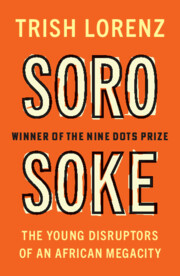The Nine Dots Prize is unique in the world of literary prizes: it is an anonymously judged prize for a book that does not exist – yet.
Each cycle the Board sets a question about one of the big issues of our times, and we invite responses to that question in the form of a 3,000-word essay. The writer of the most compelling response receives $100,000, a book deal from Cambridge University Press, and support from the team at the Centre for Research in the Arts, Social Sciences and Humanities (CRASSH) at Cambridge University – i.e. everything they need to develop their response into a full-length book.
Crucially, the Prize is judged anonymously, on the strength of the essay and the supporting book outline alone. The Board doesn’t receive any background information about entrants and any potentially identifying information is removed from the essays before judging begins. This is an attempt at levelling the playing field so that new and emerging thinkers have as good a chance of winning as established voices, regardless of their background, identity or career history.
The name of the Prize comes from the famous lateral thinking puzzle – in which nine dots need to be connected using four straight lines and without lifting the pencil from the paper – as it sums up what we were hoping to find: outside-of-the-box thinking.
In 2020, for the third cycle of the Prize, we posed the question ‘What does it mean to be young in an ageing world?’ We were delighted by the hundreds of submissions we received and the range of approaches entrants had taken, but there was one that stood out above all others. This entry made a thoroughly compelling and well-evidenced argument that the question of what it means to be young in the 21st century must not overlook the substantial youth populations of sub-Saharan African as they will play a significant role in shaping our world in the coming decades. Focusing on Nigeria – one of the youngest countries in the world, where more than 42 per cent of the population is under 14 years old – the entrant proposed conducting in-depth interviews with the youth population to explore the question using first-hand testimony. The Board was fully convinced by the argument and the rigour of the proposed approach. We were very pleased to announce Trish Lorenz as our winner and to follow her progress as she conducted the interviews that shaped this fascinating, vibrant and carefully researched book, Soro Soke: The Young Disruptors of an African Megacity.
Trish Lorenz follows in the footsteps of our first two winners, tech strategist turned Oxford philosopher, James Williams, and writer and journalist, Annie Zaidi.
Williams responded to the inaugural question ‘Are digital technologies making politics impossible?’ The resulting book, Stand Out of Our Light: Freedom and Resistance in the Attention Economy, was published in May 2018 to critical acclaim (‘pay your full, undivided attention to this short, absorbing, and deeply disturbing book’ – Financial Times) and chosen as Princeton University’s 2019 Pre-read, sent to all incoming students as an introduction to intellectual life at Princeton. Zaidi’s ‘powerful’ and ‘unique’ answer to the question ‘Is there still no place like home?’ became Bread, Cement, Cactus: A Memoir of Belonging and Dislocation, described by The Observer as a ‘compelling exploration of the intimate and political sides of an itinerant life’.
As Trish Lorenz joins our list of winners and we see her book make its way into the world, we hope that readers will continue to follow the Prize as we seek to spark thoughts, discussion and debate about the most important questions of our times.
For more about the Nine Dots Prize please visit ninedotsprize.org



